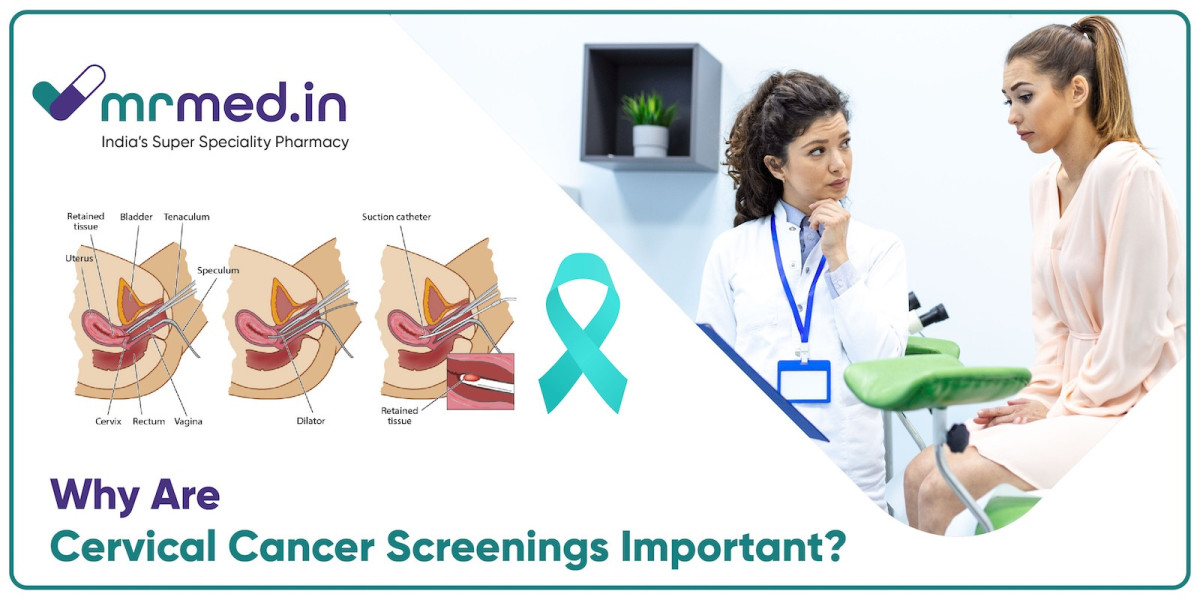Regular cervical screenings are not just important, they are crucial for early detection of cervical cancer, one of the most preventable forms of cancer if caught early. These screenings can detect abnormal changes in the cervix before they develop into cancer, improving treatment outcomes. Despite this, many women skip regular screenings, which increases their risk of a late-stage diagnosis. Being cautious and attentive to these screenings can make a significant difference in your health.
Key reasons to prioritise routine cervical screenings include:
Early detection of abnormal cells reduces the risk of advanced cervical cancer.
Detecting infections such as HPV, which is responsible for the majority of cervical cancer cases.
Screening offers a sense of empowerment, ensuring women stay proactive in managing their reproductive health. By taking control and being responsible, women can significantly reduce their risk of late-stage diagnosis and improve their treatment outcomes.
What is Cervical Cancer, and How Does It Develop?
Cervical cancer occurs in the cervix, the lower part of the uterus, and is most often caused by persistent infection with high-risk types of the human papillomavirus (HPV). HPV is spread primarily through sexual contact, and while most infections clear up on their own, some high-risk strains can cause abnormal changes in cervical cells, potentially leading to cancer.
Risk factors for cervical cancer:
Persistent high-risk HPV infection.
Smoking and weakened immune system.
Multiple full-term pregnancies or use of oral contraceptives for an extended period.
How Can the HPV Vaccine Prevent Cervical Cancer?
Vaccination is a crucial tool in the fight against cervical cancer. The HPV vaccine helps protect against the strains of HPV that are most likely to cause cervical cancer.
Vaccines like Gardasil Injection and Cervavac Injection offer protection against the high-risk HPV types. These vaccines have been extensively tested for safety and efficacy, and while they may cause mild side effects like soreness at the injection site or fever, the benefits of vaccination far outweigh these risks.
Administered before exposure to the virus (ideally before sexual activity), these vaccines drastically reduce the likelihood of cervical cancer.
The HPV vaccine is recommended for preteens, but it can be given to women up to the age of 45 to reduce cancer risk later in life.
What Happens During a Cervical Cancer Screening?
Cervical screenings typically involve a Pap smear or an HPV test. These tests help healthcare providers detect abnormal changes in the cervical cells or the presence of high-risk HPV strains, allowing for timely intervention.
Pap smear: A sample of cells is collected from the cervix to check for precancerous or cancerous changes.
HPV test: This test screens for high-risk types of HPV that could lead to cervical cancer.
Women between 21 and 29 should have a Pap smear every three years, while those 30 to 65 can have both a Pap smear and an HPV test every five years.
Who Should Get Screened and How Often?
The frequency and type of screening vary depending on a woman’s age and health history. However, in general:
Women aged 21-29: Pap smear every three years.
Women aged 30-65: Pap smear and HPV test every five years, or Pap smear alone every three years.
Women over 65: Screening may not be necessary if they've had regular screenings in the past and are at low risk.
What Are the Symptoms of Cervical Cancer?
In its early stages, cervical cancer may not present any symptoms, which is why regular screenings are essential. However, as the disease progresses, women may experience:
Abnormal vaginal bleeding, especially between periods or after intercourse.
Pain during intercourse.
Unusual vaginal discharge with a foul odour.
Pelvic pain or discomfort.
Knowing these symptoms can provide a sense of reassurance, as it allows women to be informed and prepared. If any of these symptoms appear, it’s important to consult a healthcare provider immediately for further evaluation and peace of mind.
Routine cervical screenings can detect early signs of cancer or precancerous changes. This early detection allows for treatment before cancer develops or advances, significantly improving outcomes. For women with abnormal results, follow-up procedures like colposcopy, a closer examination of the cervix using a special magnifying device, or biopsy, a procedure to remove a small piece of tissue for examination under a microscope, can confirm the presence of cancerous or precancerous cells.








